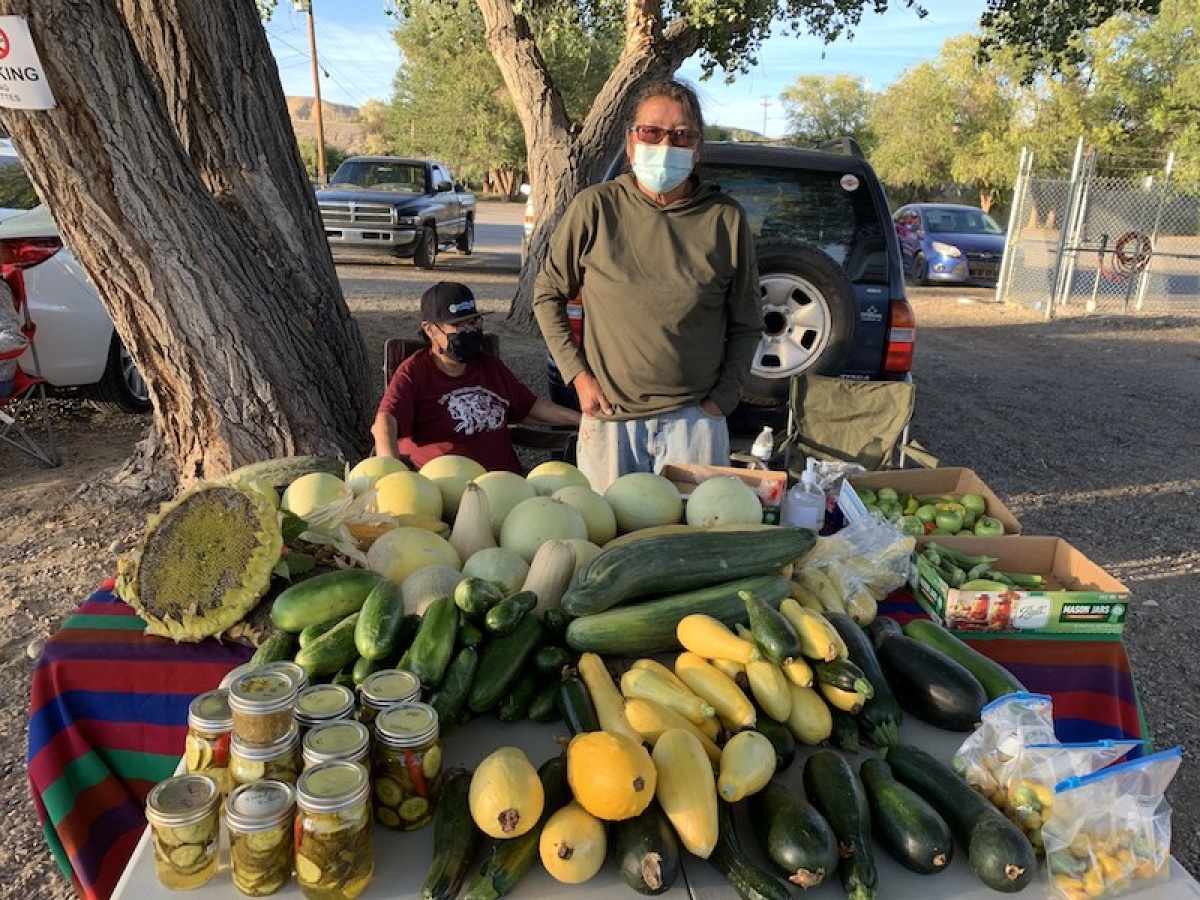Three Ways Health Programs Reflect Diné Culture on Navajo Nation
Traditional foods and water are vital to physical, mental, and spiritual health
Posted on Nov 19, 2021

National Native American Heritage Month, which has been celebrated every November since 1990, is a time to recognize and celebrate the contributions of Native American and Indigenous peoples and honor their traditions and cultures. In honor of the month, we’re highlighting several ways Community Outreach and Patient Empowerment (COPE), Partners In Health’s sister organization on Navajo Nation, tie Navajo culture into their health programs.
Through a patient-focused and community-based approach, COPE colleagues are committed to eliminating health disparities and improving the well-being of American Indians and Alaska Natives. COPE programs are driven by community member input that reflects Navajo (Diné) culture, language, and traditional teaching.
Below are three COPE programs that demonstrate this approach:
Making Traditional Foods More Accessible
Food is medicine. This belief lies at the heart of Diné cultural traditions. Food is viewed as an important component and balance of oneself—physically, spiritually, and mentally. Navajo people traditionally consumed a variety of corn, squash, and other vegetables native to the southwest region.
Through the Fruit and Vegetable Prescription Program (FVRx), COPE provides vouchers to help enrolled Navajo families reintroduce healthy traditional food into their diet. More than 1,000 families have participated in FVRx since 2015.

Empowering Growers to Succeed
While it is convenient to purchase food at a grocery store, there aren’t many on Navajo Nation. In total, there are 13 grocery stores across 17 million acres of land—roughly the size of West Virginia. This is why supporting Navajo growers to improve access to locally grown food is vital to a healthy food system.
The health of the people, community, and land are all connected. Navajo growers face many challenges, including water access, land disputes, invasive weed species, and drought issues. And for most, growing traditional squash, corn, melons, and other produce isn’t enough to earn a living wage. However, for Navajo people, growing these foods reinforces their resiliency and sovereignty, while ensuring these traditions are passed on to future generations.
COPE’s Growers Initiative supports local Navajo producers as they revitalize sustainable food systems. The informal program is a collective effort and works with individuals based on interest, need, and capacity.

Promoting Physical, Spiritual Benefits of Water
Water, or Tó, is a central part of Diné values and teachings. However, many people on Navajo Nation lack access to clean drinking water due to decades of uranium mining, well contamination, and fracking, which has led to unsafe levels of contaminants in sources of drinking water. The introduction of sugary beverages, such as soda and juice, has also disrupted the diets of people on Navajo Nation.
COPE is working to highlight the importance of water for personal health, gardens, and livestock. Through Water is K’é, COPE promotes healthy beverage consumption by creating and distributing beverage kits, conducting healthy beverage demos, and hosting community workshops about the importance of choosing water over sugar sweetened beverages. As of November, COPE has completed around 50 healthy beverage demonstrations and distributed around 15 Tó kits Navajo schools and businesses.

